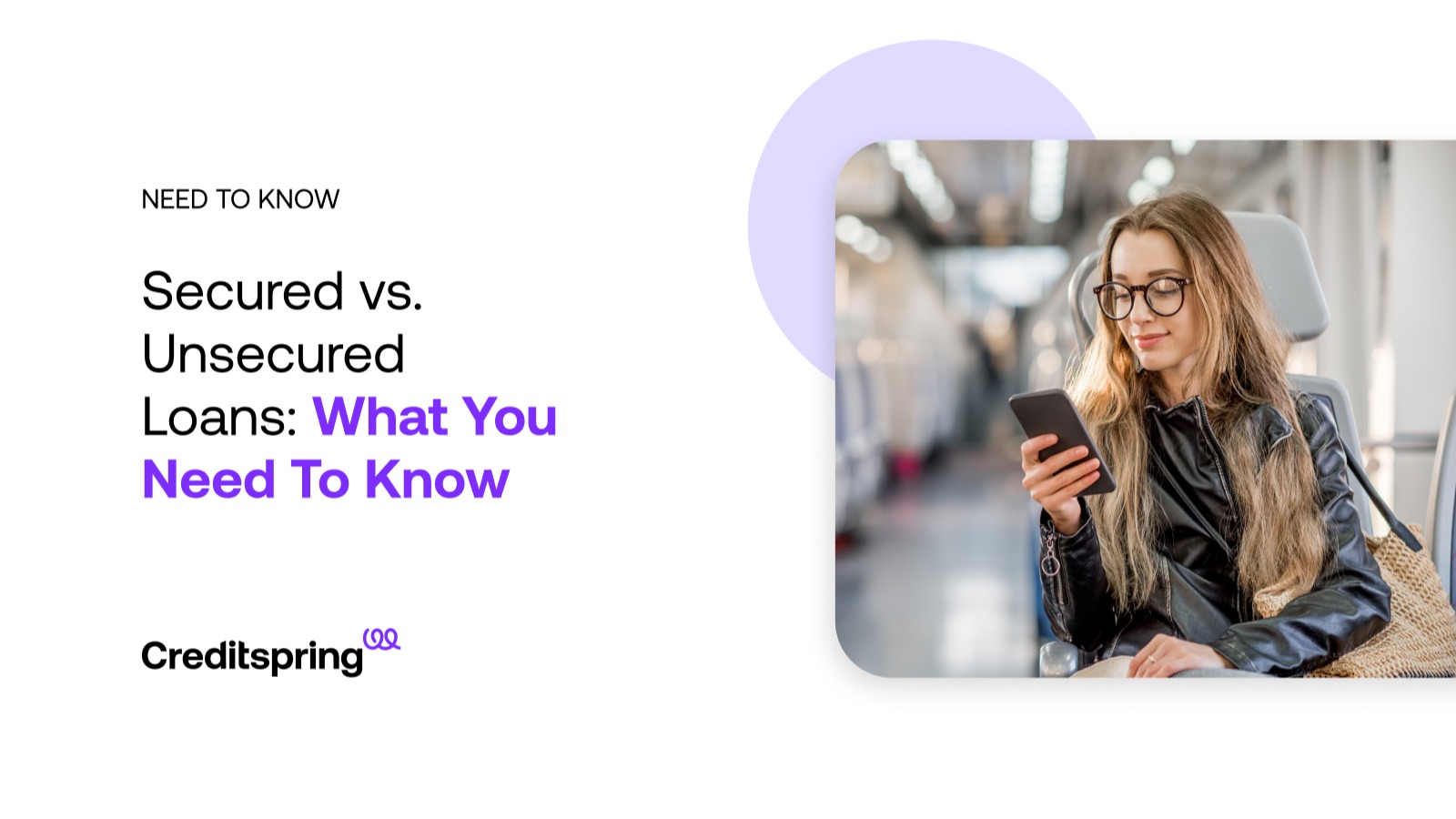

Are you in the market for a loan but overwhelmed by all the options available? The most common types of loans are secured and unsecured loans, so it’s important to know the difference between the two.
In this guide, we'll break down the pros and cons of each type of loan - secured and unsecured - to help you make an informed decision when picking the best option for your situation.
A secured loan is a type of loan that requires the borrower to pledge collateral, such as a house, car, or another asset, in order to secure the loan.
The collateral serves as security for the loan and gives the lender the right to seize the asset if the borrower defaults on the loan.
Secured loans typically have lower interest rates than unsecured loans because they are less risky for lenders. The downside of secured loans is that borrowers who default on the loan may lose their collateral.
Whether a secured or unsecured loan is right for you depends on your financial situation and goals.
If you need a loan but don't have any assets to use as collateral, your only option may be an unsecured loan. On the other hand, if you have assets you're willing to put up as collateral, a secured loan could save you money on interest payments.
Pros
Lower interest rates: Because secured loans are backed by collateral, lenders are more willing to offer lower interest rates. This can save you a significant amount of money in the long run.
Flexible repayment terms: Secured loans typically have more flexible repayment terms than unsecured loans. This means you can choose a repayment plan that fits your budget and financial needs.
You can use equity to get a lower rate: If you have equity in your home or another asset, you may be able to use it as collateral for a secured loan. This can help you get a lower interest rate on your loan.
Your credit score isn’t as important: Because secured loans are backed by collateral, lenders aren’t as concerned about your credit score. This means people with poor credit scores may still be able to qualify for a secured loan.
Cons
If you default on the loan, you could lose your home
Takes longer to get approved for a secured loan than an unsecured loan
An unsecured loan is a type of loan that is not backed by any collateral. This means that if you default on the loan, the lender will not be able to seize any of your assets as compensation.
However, because there is no collateral backing up the loan, lenders typically view unsecured loans as riskier than secured loans and as a result, they often charge higher interest rates.
Pros
No collateral required: with an unsecured loan, you don't need to put up any collateral, so it's generally easier to qualify for than a secured loan.
Longer repayment periods: since there's more risk involved for the lender, they may require a longer repayment period on an unsecured loan.
Cons
Higher interest rates: because there's more risk involved for the lender, they may charge higher interest rates on unsecured loans.
Good credit scores: As there is no collateral involved, most unsecured loans require you to have a good credit record as lenders need to reduce the risk of you defaulting on your loan.
So which type of loan is right for you? It depends on your individual circumstances and financial goals. If you need a large sum of money and have good credit, a secured loan may be the best option.
However, if you're looking for a smaller amount of money and don't want to put up any collateral, an unsecured loan may be a better choice.
Ultimately, it's important to weigh all of your options carefully before making a decision. Whichever option you choose, it's important to make sure you can afford the monthly payments before signing up for a loan so that you won't find yourself in over your head later down the road.
Secured loans require collateral and tend to have lower interest rates, while unsecured loans do not require collateral but tend to have higher interest rates. Borrowers should carefully consider their options and assess their ability to repay the loan before taking out any type of loan.
For information and support to aide you in achieving your financial goals Money Helper is a free service set up by the Government to help people make the most of their money. Click here if you would like to learn more about Money Helper and their services